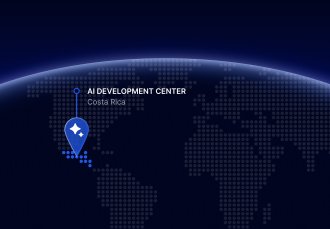
Contact us
Our team would love to hear from you.
Immerse yourself in the world of realistic XR experiences with our dedicated services and enjoy the limitless possibilities of these cutting-edge technologies! Utilizing our extensive technical expertise, the team at EffectiveSoft extends the boundaries of reality through custom XR solutions.
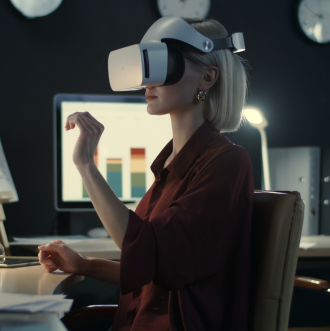
services
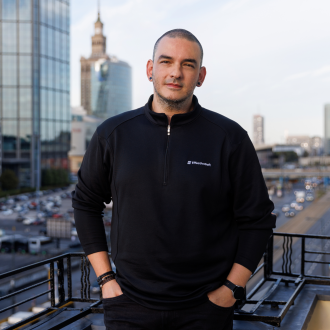
“XR services are about transcending physical limitations and enhancing human experiences, making distant worlds reachable and complex concepts graspable. The true power of XR lies in its ability to create immersive experiences that are as meaningful as they are revolutionary.”
Delivery Director
industries
XR allows engineers and designers to create and test models in a virtual environment, speeding up the design and manufacturing phases and reducing the need for physical prototypes. For employee training, XR provides solutions that replicate real-world factory settings, enabling workers to practice tasks and learn new skills without being exposed to physical hazards. Additionally, XR aids in maintenance and repair by overlaying digital information onto real machinery to guide technicians through complex processes.
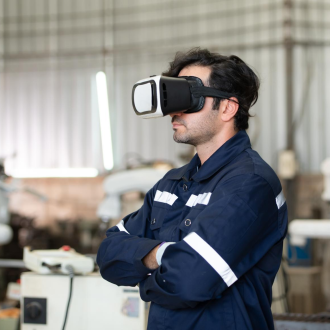
Extended reality experiences revolutionize how medical professionals learn, diagnose, and treat patients. In training scenarios, XR allows medical students and professionals to practice complex procedures in a controlled, virtual space, which can reduce errors and improve outcomes when applied in real-life situations. For diagnostic purposes, XR technologies enable doctors to visualize tissues and organs in three dimensions, aiding in more accurate assessments. Furthermore, extended reality solutions can be used for patient rehabilitation and therapy, providing engaging and efficient methods to manage pain, recover motor skills, and more.
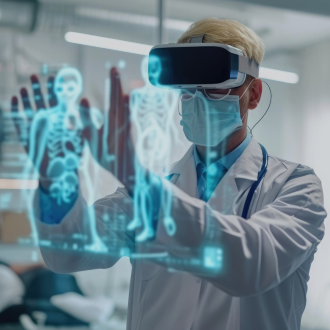
Through our extended reality services, retailers can enhance client engagement and satisfaction, helping consumers make informed purchasing decisions. XR can simulate in-store shopping from the comfort of a customer’s home, offer virtual try-ons for clothes and makeup, and provide interactive, 3-D views of products. Moreover, XR tools can assist in inventory management and store layout planning through detailed analytics and visualization features.
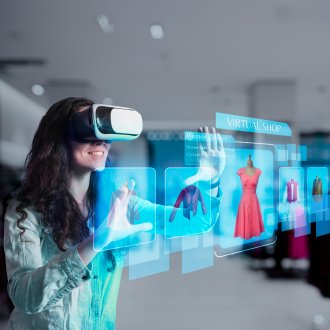
XR enhances the way properties are marketed, sold, and experienced. Extended reality solutions enable potential buyers to virtually tour properties from anywhere in the world and make detailed inspections of spaces without having to be there physically. This not only saves time but also extends the market reach of real estate professionals. XR can also assist with space planning and interior design, helping buyers visualize living in their new home.
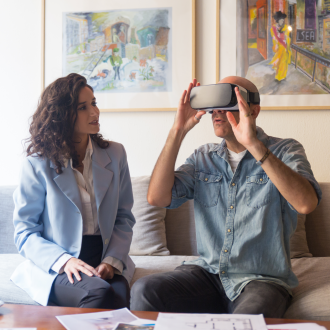
XR improves gameplay with environments that players can explore in 360 degrees. This technology allows developers to craft more engaging and interactive stories, giving players the sensation of being inside the game itself. In the entertainment industry, XR is used to enhance live performances, movies, and exhibitions. For example, museum visitors can interact with artifacts in ways previously impossible, like stepping into a historical scene or exploring an item in detail.
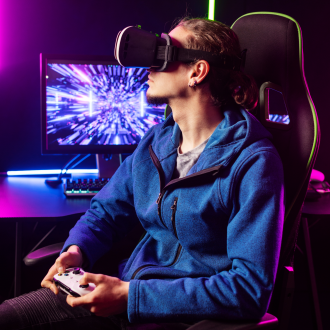
XR allows for immersive environments where students can interact with 3-D models, historical simulations, or complex data visualizations, making abstract concepts tangible. XR caters to diverse learning styles and can significantly improve engagement and retention of information. It also facilitates remote learning, offering realistic simulations that are accessible from anywhere, thereby expanding educational opportunities to a broader audience.
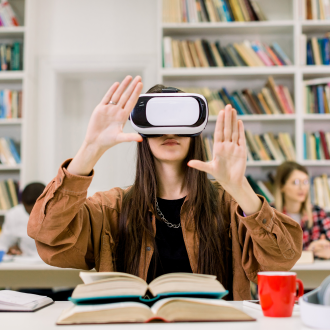
XR offers architects and engineers innovative tools to create immersive, interactive models that display project outcomes even before construction begins. Subsequently, stakeholders gain access to a shared, virtual space where they can review designs and make any required adjustments, controlling the construction process in real time. XR is also invaluable for training workers for safety purposes.
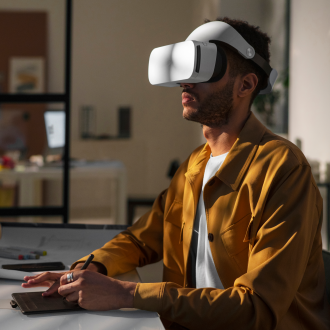







our process
We get to know the main objectives, target audience, and desired outcomes of the future solution.
Our experts create intuitive navigation, interactions, visual elements, aesthetics, and overall appearance.
We develop a preliminary version of the app to test and refine the UI and UX concepts.
Our engineers proceed with coding and building the app using XR development tools. Various elements are integrated during this phase, such as 3-D models and animations.
We conduct thorough testing to ensure the app functions correctly across different devices and use cases.
We release the XR app on the appropriate platforms, ensuring compatibility with targeted XR devices.
Our team monitors the app’s performance and user feedback to identify any issues or areas of improvement. We also regularly update the app to fix bugs and add new features as required.
our advantages
The global presence of our XR development company offers you strategic advantages, including alignment with your time zone, facilitating smoother collaboration and faster response times.
Our XR developers have extensive expertise in a wide range of technologies and projects across industries, which enables us to deliver tailored XR solutions that meet specific client needs.
We emphasize transparent communication practices, including regular updates and open feedback to ensure stakeholders are always informed and involved in the development process.
For extended reality services and beyond, our team uses Agile methodology, which enables us to respond quickly to new requirements or shifts in project scope, providing a competitive advantage.
Our extended reality development company is committed to robust security measures to safeguard XR apps from potential threats, including compliance with international standards and best practices in data protection.
We take a bespoke approach to each project to guarantee that our final products are not just technically sound but also closely aligned with the expectations and demands of each client.
technologies
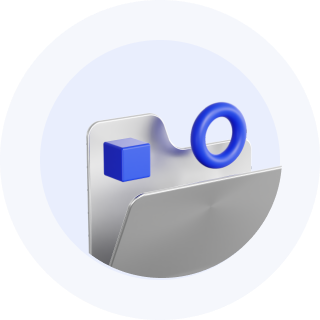
Extended reality (XR) is an umbrella term that encompasses VR, AR, and MR. XR technologies aim to merge the digital and physical worlds or create entirely immersive digital environments.
XR technologies can improve training efficiency, offer immersive customer experiences, enable innovative marketing strategies, streamline design processes, expand remote collaboration capabilities, and more.
XR development faces several challenges, including achieving immersive experiences without user discomfort and managing high computational demands across different devices. Additionally, XR requires specialized content creation skills to produce optimized 3-D models and environments. It also raises significant privacy and security concerns due to the sensitive user data collected by XR systems.
User interactions in XR environments are designed to accommodate the natural ways people move and interact in the real world. XR developers use various input methods, such as hand tracking, voice commands, head movements, and traditional controllers. Effective XR interaction design also involves creating intuitive gestures and actions that feel natural and reduce the learning curve for users.
Extended reality app development requires a blend of technical and creative skills, particularly proficiency in languages like C# and C++, a strong understanding of 3-D modeling, computer graphics, UX/UI design, and spatial computing, as well as technical knowledge of XR hardware, and more.
Can’t find the answer you are looking for?
Contact us and we will get in touch with you shortly.
Our team would love to hear from you.
Fill out the form, and we’ve got you covered.
What happens next?
San Diego, California
4445 Eastgate Mall, Suite 200
92121, 1-800-288-9659
San Francisco, California
50 California St #1500
94111, 1-800-288-9659
Pittsburgh, Pennsylvania
One Oxford Centre, 500 Grant St Suite 2900
15219, 1-800-288-9659
Durham, North Carolina
RTP Meridian, 2530 Meridian Pkwy Suite 300
27713, 1-800-288-9659
San Jose, Costa Rica
C. 118B, Trejos Montealegre
10203, 1-800-288-9659